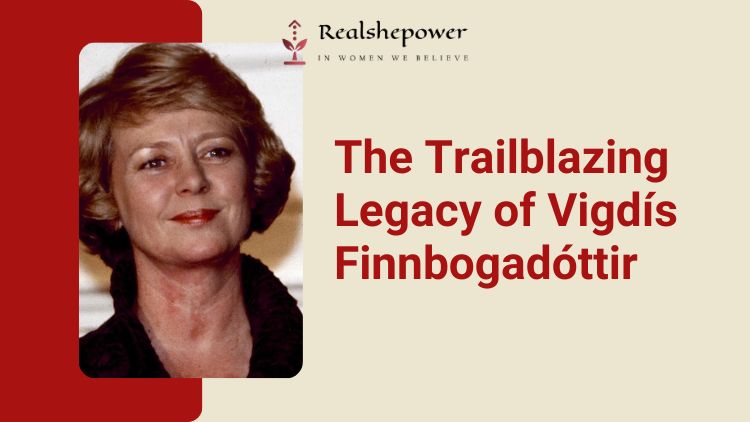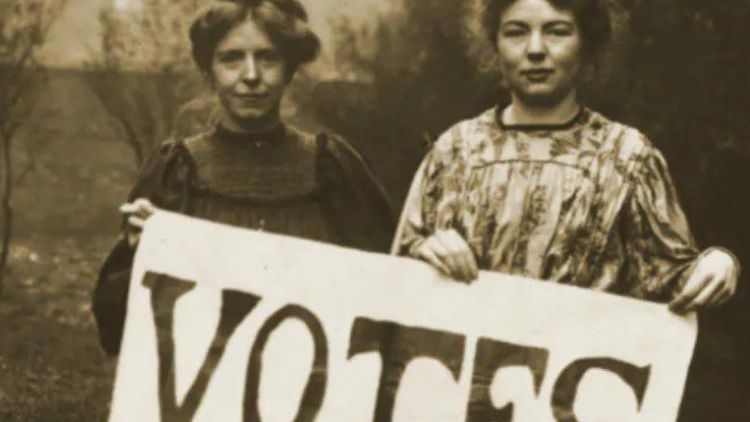Vigdís Finnbogadóttir: The Inspiring Story of World’s First Female President


Iceland, a small Nordic country with a population of just over 350,000 people, is known for its stunning natural beauty, unique cultural heritage, and progressive policies. It is also home to a remarkable woman who has made history by becoming the world’s first democratically elected female president. Her name is Vigdís Finnbogadóttir, and her journey is nothing short of inspirational.
Born on April 15, 1930, in Reykjavik, Vigdís grew up in a family of strong-willed women who instilled in her a sense of independence, curiosity, and a love for learning. Her mother was a single parent who worked as a dressmaker and seamstress to support her three children, while her grandmother was a suffragette who fought for women’s right to vote in Iceland.
Vigdís’s passion for language and culture led her to study French, English, and German at the University of Grenoble in France and the University of Iceland. She then went on to earn a degree in French literature and drama from the Sorbonne in Paris, which paved the way for her career as a language teacher, translator, and director of the Reykjavik Theatre Company.
In 1976, Vigdís was appointed the director of the Icelandic National Broadcasting Service, making her the first woman to hold such a high-ranking position in the country’s media industry. During her tenure, she introduced several innovative programs and initiatives that helped to promote Icelandic culture, language, and music, and she became a beloved figure in the country’s cultural scene.
But it was her decision to run for president in 1980 that would change the course of her life and make history. At the time, Iceland was facing a severe economic crisis, social unrest, and a sense of disillusionment among its citizens. Vigdís, who had already gained a reputation for her intelligence, charisma, and leadership skills, saw an opportunity to bring about change and unify the country.
She faced formidable opponents, including two male candidates with extensive political experience, but her campaign was unlike anything Iceland had ever seen. She traveled the length and breadth of the country, meeting people in their homes, workplaces, and schools, and engaging with them on a personal level. She spoke about the importance of education, culture, and women’s rights, and she won the hearts and minds of voters across the political spectrum.
On June 29, 1980, Vigdís was elected as Iceland’s fourth president and the first woman in the world to be democratically elected as a head of state. It was a momentous occasion that sent shockwaves across the world and inspired a generation of young women to follow in her footsteps.
During her four terms in office, from 1980 to 1996, Vigdís became a symbol of women’s empowerment, democracy, and progressive politics. She worked tirelessly to promote gender equality, environmental protection, and human rights, and she played a key role in shaping Iceland’s international image and reputation.
One of her most memorable moments came in 1986 when she met with the Queen of England during a state visit to Iceland. The Queen was reportedly taken aback when Vigdís addressed her in Icelandic, a language that few people outside of Iceland can understand. The two women quickly bonded over their shared love of horses, and the meeting became a shining example of Vigdís’s ability to connect with people from all walks of life.
Vigdís’s impact on Iceland and the world is immeasurable. She was a trailblazer who broke down barriers, challenged stereotypes, and paved the way for women in politics. Her legacy lives on in the many young women who have been inspired by her example and who have gone on to become leaders in their own right.
In recognition of her extraordinary achievements, Vigdís has received numerous awards and honors, including the Presidential Medal of Freedom from President Bill Clinton in 1994. She has also served as a goodwill ambassador for UNESCO and as a member of the United Nations Secretary-General’s Advisory Board on Disarmament Matters.
In recent years, Vigdís has continued to be a voice for progressive politics and women’s rights. She has spoken out against gender-based violence and discrimination, and she has called for greater representation of women in positions of power.
Despite her many accomplishments, Vigdís remains humble and gracious, always quick to credit the people of Iceland for their support and encouragement. She once said, “I always say, the most important thing is to be yourself. Don’t be afraid of your own voice, your own thoughts, your own heart. You have to listen to yourself, and then be brave enough to follow what you believe in.”
In conclusion, Vigdís Finnbogadóttir is a remarkable woman who has left an indelible mark on the world. Her journey from a young girl in Reykjavik to the world’s first democratically elected female president is a testament to the power of education, determination, and leadership. Her story is an inspiration to all who believe in the power of women and the importance of democracy, and it serves as a reminder that we all have the ability to make a difference in the world.
Wow Element: Vigdís Finnbogadóttir is not only the first democratically elected female president in the world, but she also served for 16 years, longer than any other female president or prime minister in history.
FAQ
Who was Vigdís Finnbogadóttir?
Vigdís Finnbogadóttir was the first democratically elected female president in the world. She served as the president of Iceland from 1980 to 1996.
What was Vigdís’s background?
Vigdís was born in Reykjavik, Iceland, in 1930. She grew up in a working-class family and went on to study languages and literature at the University of Iceland.
What was Vigdís’s role in promoting gender equality in politics?
Vigdís was a trailblazer who broke down barriers and challenged stereotypes. Her election as president of Iceland paved the way for women in politics and inspired many young women around the world to pursue leadership positions.
What other accomplishments did Vigdís have?
In addition to her role as president of Iceland, Vigdís was a prolific writer and translator. She also served as a goodwill ambassador for UNESCO and as a member of the United Nations Secretary-General’s Advisory Board on Disarmament Matters.
What was Vigdís’s philosophy on leadership?
Vigdís believed in the power of education, determination, and leadership. She often spoke about the importance of being true to oneself and following one’s own heart and beliefs.
How has Vigdís’s legacy impacted women in politics?
Vigdís’s legacy lives on in the many young women who have been inspired by her example and who have gone on to become leaders in their own right. Her story serves as a reminder that women can be successful in politics and that gender equality is essential for a functioning democracy.
Sources:
- “Vigdís Finnbogadóttir – Facts.” NobelPrize.org, Nobel Prize, https://www.nobelprize.org/womenwhochangedscience/stories/vigdis-finnbogadottir.
- “Vigdís Finnbogadóttir.” UNESCO, United Nations Educational, Scientific and Cultural Organization, https://en.unesco.org/goodwill-ambassadors/vigdis-finnbogadottir.
- “Vigdís Finnbogadóttir.” Encyclopædia Britannica, Encyclopædia Britannica, Inc., https://www.britannica.com/biography/Vigdis-Finnbogadottir.
You can now write for RSP Magazine and be a part of the community. Share your stories and opinions with us here.

